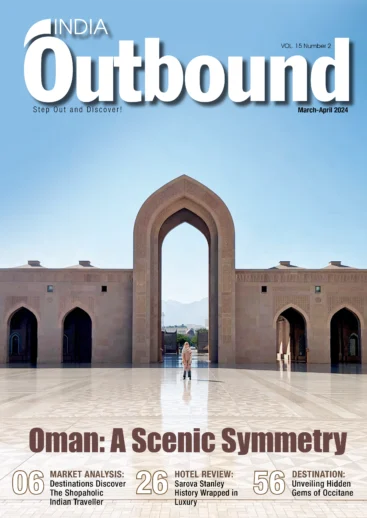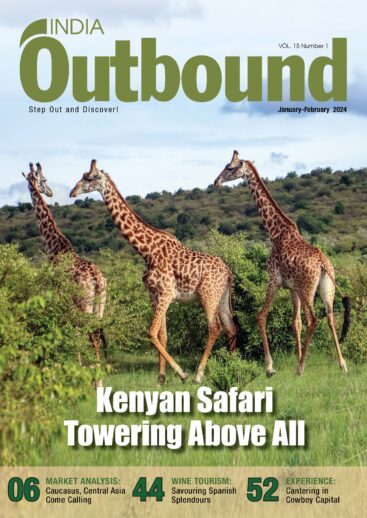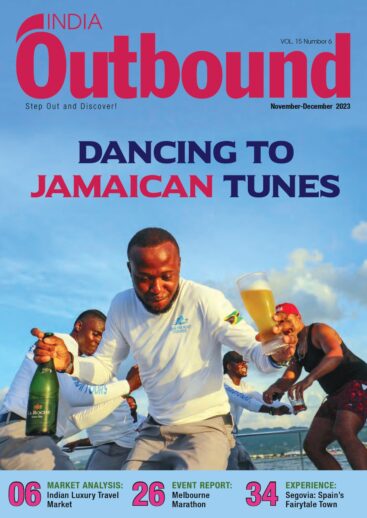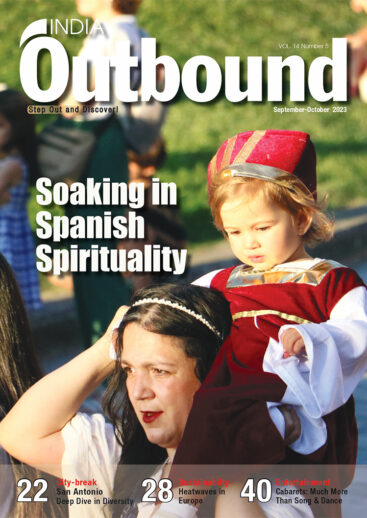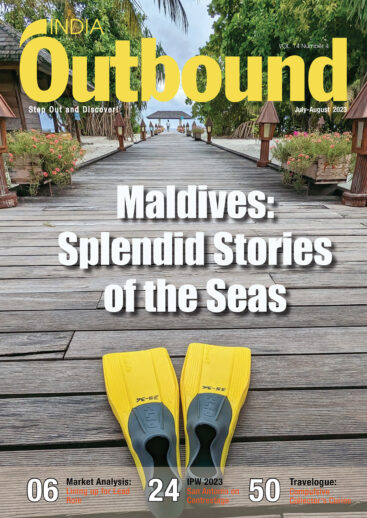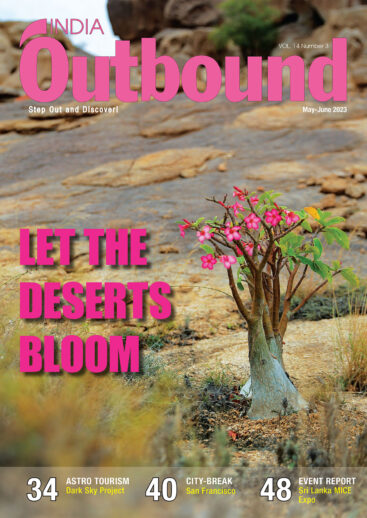
With heatwaves becoming a fixture in summers and increasing intensity and duration of heatwaves, tourists all around the world are reporting lesser level of satisfaction with the entire experience (Photo: India Outbound/Varsha Singh)
With the onset of summer in the northern hemisphere, extreme heatwaves have gripped a large part of the world, with China, southern Europe, Spain and Italy, and North America all registering record high temperatures.
With heatwaves becoming a fixture in summers and increasing intensity and duration of heatwaves, tourists all around the world are reporting lesser level of satisfaction with the entire experience, including their stays in hotels, due to the heat and lack of air-conditioning in many hotels, notably in Europe.
According to a report released by Belvera Partners says that winter could become the new summer for tourism and over 70 years of mass tourism patterns could shift, resulting in people taking their annual holidays either at different times of the year or in different locations from before.
In a press statement, the consultancy says that it spoke with various domain experts to see if travel data shed any light on the impact of heatwaves on tourism traffic.
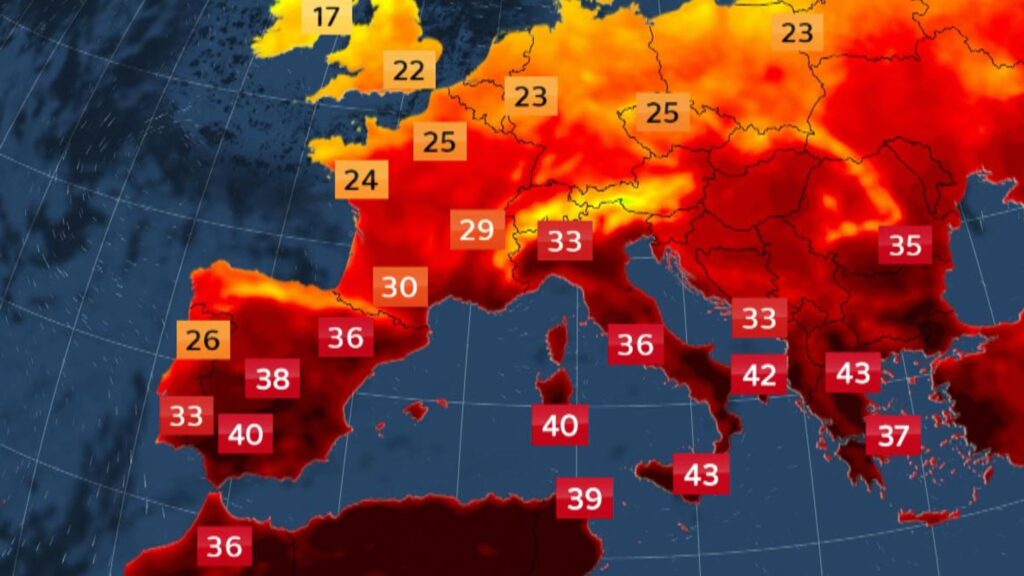
Belvera Partners says that working on the assumption that the trend for hotter weather is set to continue and all the scientific evidence points that way, then it may not be long before the world may need to rethink its entire approach to summer holidays
It says that Carlos Cendra of travel intelligence firm Mabrian believes that tourists are getting put off by the heatwaves. “For this year it is perhaps too early yet to judge, but looking at our own data based on our Mabrian Climate Perception Index, which uses advanced natural language processing, artificial intelligence and machine learning techniques to analyse social media in real time, from last summer in France, Greece and Spain, tourists were on average less satisfied with the weather than the previous year, which was much cooler,” says Cendra.
The statement adds that not everyone seems to be put off by the heat as other data from Mabrian shows that conversely tourists in the United Kingdom last summer showed an overall improved perception of the weather when compared to 2021. The data also suggests that travellers unsatisfied with the weather are more likely to rate their hotels and the destinations in general with lower approval ratings.
Belvera Partners says that working on the assumption that the trend for hotter weather is set to continue and all the scientific evidence points that way, then it may not be long before the world may need to rethink its entire approach to summer holidays.
“Travellers could start visiting physically cooler places during the summer months or they could start changing when they visit, for example coming much earlier or much later in the season,” says Martin Eade of booking engine technology provider Vibe.
Dramatic changes on the anvil
Eade goes on to say that there will be a mixture of these responses and as such travel providers and sellers with products in the cooler places should already be thinking about pushing their marketing hard when heatwaves are occurring.
“Although we are not yet seeing any immediate change in our booking patterns, assuming increases in temperatures lead to changes in the future, this will not necessarily mean that Brits or Germans might start holidaying on Danish beaches, instead it could mean that they book more northern France or northern Spain, both reasonably and reliably warm in the summer, so in the medium to long term, the industry may begin to increase their focus on these regions,” says Gareth Matthews, Chief Marketing Officer at global hotel booking firm Didatravel.
“Certainly, within hotel properties in hotter regions, we are very likely to see changes in terms of improved air conditioning, move covered public spaces, and perhaps Food and Beverage operations that either start earlier in the day or go later into the night to avoid the hottest periods. Features like these can make your property stand out in a crowded market and we would encourage hoteliers to promote those features on their website and OTA listings,” says Sebastien Leitner, VP of Partnerships of Cloudbeds, a provider of technology to independent hotels.
“The heatwaves are also likely to impact travel insurance industry and travel insurance products that stay relevant to todays’ environment with customisation options will continue to drive innovation,’’ says Katie Crowe of travel insurance firm Battleface.
Crowe adds that unbundled, tech led and modularly driven single-benefit products will be able to properly address these upcoming patterns. Insurance underwriters would be able to price more precisely according to the risk, whiles customers build their policies based on their actual needs, she adds.
DMCs also need to prepare for change
For the providers of in-destination services such as tours and activities, this could be a double-edged sword too, says Douglas Quinby of Arival, an in-destination event and research company.
“If you do fishing boat trips in Alaska this might be good news, but if you are a tour guide in Rome it is not clearly, either way you are going to have to respond and think about how you both adapt your product and market your services.,” says Quinby, adding pricing, scheduling and even staff contracting could all be impacted as the same number of travellers start to visit for longer seasons, thus pushing up costs.
The statement by Belvera Partners adds that from a tech perspective this introduces many needs and therefore opportunities too for travel intermediaries. For example, search filters on travel websites could start to have an ‘average temperature’ option or feature weather advice functionality to guide people as to what to expect where and when, it says.
The changing weather patterns also mean that from a revenue management perspective, even peak season and its prices would need to be reviewed. “Perhaps we can be linking prices instead to temperatures than date ranges and there is also the opportunity to upsell and cross-sell products and services that respond to the need to keep cool, such as swimming pool access passes or indoor activities,” says Alex Barros of revenue management platform Beonx.









